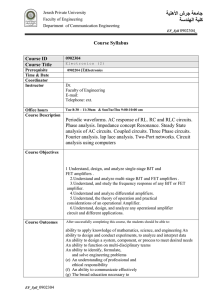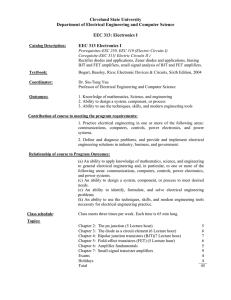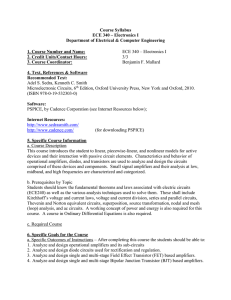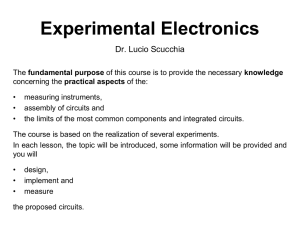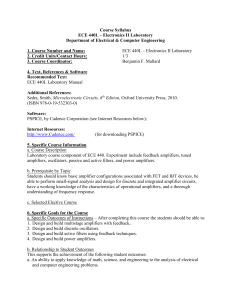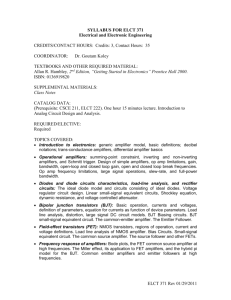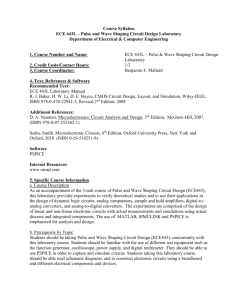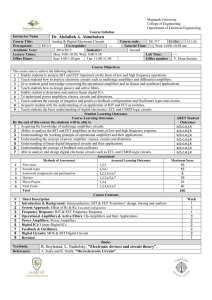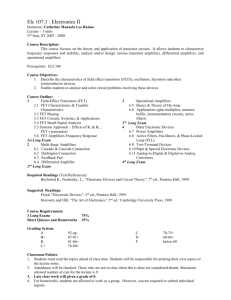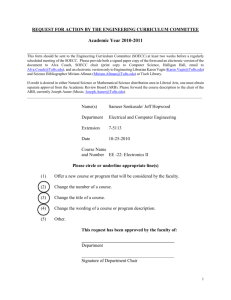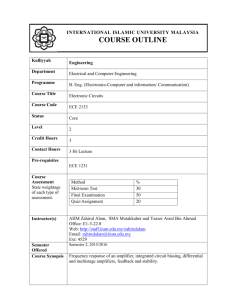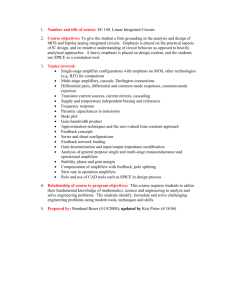ECE 340L (.doc)
advertisement
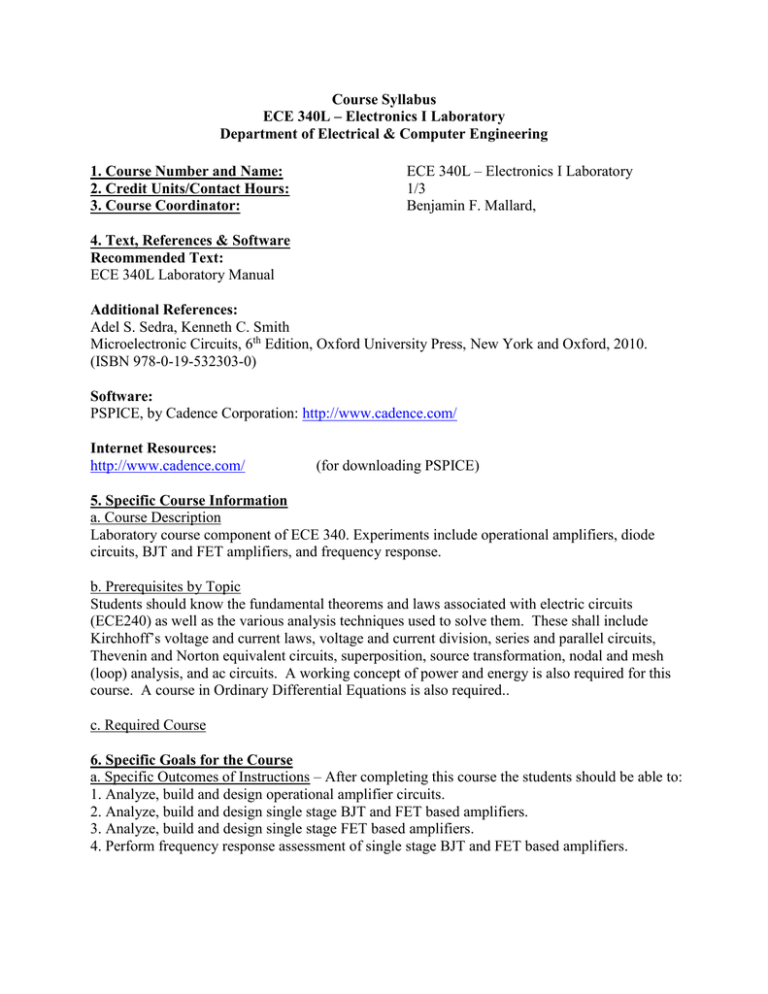
Course Syllabus ECE 340L – Electronics I Laboratory Department of Electrical & Computer Engineering 1. Course Number and Name: 2. Credit Units/Contact Hours: 3. Course Coordinator: ECE 340L – Electronics I Laboratory 1/3 Benjamin F. Mallard, 4. Text, References & Software Recommended Text: ECE 340L Laboratory Manual Additional References: Adel S. Sedra, Kenneth C. Smith Microelectronic Circuits, 6th Edition, Oxford University Press, New York and Oxford, 2010. (ISBN 978-0-19-532303-0) Software: PSPICE, by Cadence Corporation: http://www.cadence.com/ Internet Resources: http://www.cadence.com/ (for downloading PSPICE) 5. Specific Course Information a. Course Description Laboratory course component of ECE 340. Experiments include operational amplifiers, diode circuits, BJT and FET amplifiers, and frequency response. b. Prerequisites by Topic Students should know the fundamental theorems and laws associated with electric circuits (ECE240) as well as the various analysis techniques used to solve them. These shall include Kirchhoff’s voltage and current laws, voltage and current division, series and parallel circuits, Thevenin and Norton equivalent circuits, superposition, source transformation, nodal and mesh (loop) analysis, and ac circuits. A working concept of power and energy is also required for this course. A course in Ordinary Differential Equations is also required.. c. Required Course 6. Specific Goals for the Course a. Specific Outcomes of Instructions – After completing this course the students should be able to: 1. Analyze, build and design operational amplifier circuits. 2. Analyze, build and design single stage BJT and FET based amplifiers. 3. Analyze, build and design single stage FET based amplifiers. 4. Perform frequency response assessment of single stage BJT and FET based amplifiers. b. Relationship to Student Outcomes This course supports the achievement of the following student outcomes: a. An ability to apply knowledge of math, science, and engineering to the analysis of electrical and computer engineering problems. b. An ability to design and conduct scientific and engineering experiments, as well as to analyze and interpret data. c. An ability to design systems which include hardware and/or software components within realistic constraints such as cost, manufacturability, safety and environmental concerns. e. An ability to identify, formulate, and solve electrical and computer engineering problems. g. An ability to communicate effectively through written reports and oral presentations. i. A recognition of the need for and an ability to engage in life-long learning. k. An ability to use modern engineering techniques for analysis and design. m. An ability to analyze and design complex devices and/or systems containing hardware and/or software components. n. Knowledge of math including differential equations, linear algebra, complex variables and discrete math. 7. Topics Covered/Course Outline 1. Operational Amplifiers 2. Voltage Clippers 3. Voltage Clamp Circuits 4. Half and Full Wave Rectifiers 5. Single Stage BJT Amplifiers 6. Single Stage FET Amplifiers 7. Multistage Amplifiers Prepared by: Benjamin F. Mallard, Professor of Electrical and Computer Engineering, November 2011 Ali Amini, Professor of Electrical and Computer Engineering, March 2013
